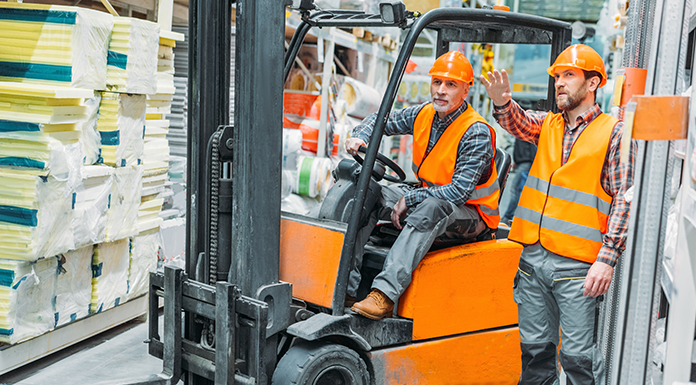Operating a forklift requires skill, precision, and, most importantly, the ability to anticipate hazards and a keen awareness of safety standards. The Occupational Safety and Health Administration (OSHA) plays a key role in ensuring workplace safety and requires employers to certify that forklift operators are competent to safely operate a forklift.
The OSHA forklift certification process is designed to mitigate risks associated with forklift operations, reduce the risk of accidents, and protect employees. According to OSHA studies, forklift accidents are closely related to operator knowledge, and an effective forklift training program can reduce operator errors by up to 70 percent. Let’s delve into the key aspects of OSHA forklift certification and its significance in preventing accidents.
What is Forklift Certification?
Forklift certification is a formalized training program mandated under the OSHA Powered Industrial Truck standard. It’s aimed at employers with employees who operate forklifts in the workplace. Before an employee begins to operate a forklift, the employer has to certify in writing that the employee possesses the necessary skills, knowledge, and competency to operate these powerful machines safely.
Who Needs OSHA Forklift Certification?
Any individual who operates a forklift, whether full-time or part-time, is required to obtain OSHA forklift certification. This includes operators, supervisors, contractors, vendors, and anyone involved in the operation of forklifts in the workplace.
The Certification Process
The OSHA forklift certification process typically involves a combination of classroom instruction, hands-on training, and an evaluation of the operator’s skills. The training should cover important forklift-specific and workplace-specific topics such as forklift operation principles, load handling, stability, and safety protocols. A written test and practical evaluation are conducted to ensure that the operator understands and can apply the knowledge gained during the training.
Benefits of OSHA Forklift Certification
- So We Go Home Safe: OSHA forklift certification is fundamentally about safety. Proper training equips operators with the skills to navigate hazards, prevent accidents, prevent injury to operators and pedestrians, and ultimately get home safely to our families.
- Reduced Accidents and Liability: Well-trained forklift operators are less likely to cause accidents, reducing the risk of injuries and property damage. Employers prioritizing OSHA forklift certification can also mitigate legal liabilities associated with workplace accidents.
- Compliance with Regulations: OSHA sets stringent regulations for workplace safety, and failure to comply can result in penalties and fines up to a maximum of $135,532. OSHA forklift certification ensures employers adhere to these regulations, creating a compliant and safe working environment.
- Increased Efficiency: Certified forklift operators are more proficient in their duties, leading to increased efficiency in material handling and warehouse operations. This proficiency translates into time and cost savings for the employer.
- Professional Development: OSHA forklift certification is a valuable credential for forklift operators. It enhances their professional development and provides a strong sense of pride and accomplishment for having obtained this important credential.
Employer Responsibilities
Employers play a pivotal role in the OSHA forklift certification process. They are responsible for providing the necessary training, ensuring that the workplace is conducive to safe forklift operations, and maintaining a culture of safety. Regular refresher courses are also recommended to update operators on the latest safety standards and best practices.
Forklift Safety Resources
OSHA forklift certification is not just a regulatory requirement; it is a way to reduce the risk of serious injury or fatality when operating forklifts. By investing in the training and certification of forklift operators, employers prioritize the well-being of their employees, protect valuable assets, and contribute to a safer and more productive work environment.
We offer free forklift safety resources to assist your organization in reducing the risk of forklift accidents. Visit our Safety OnDemand(R) site to access and download safety meeting handouts, streaming videos, and eLearning courses. To learn more about our upcoming forklift train-the-trainer classes, please visit our Free Virtual Forklift Train-the-Trainer Classes registration page on Safety OnDemand.

















